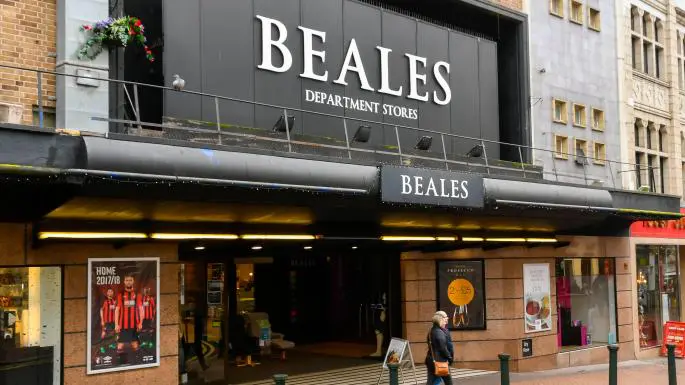More than 1,000 jobs are at risk after Beales, the 139-year-old department stores group, became the first significant casualty of the tough conditions faced by retailers over Christmas.
KPMG was appointed as administrator to the chain of 23 stores yesterday
after the company failed in an attempt to find a rescuer. Beales’ shops will continue to trade as going concerns and its staff will remain employed while the administrator examines options, which it said included “dealing with prospective interested parties”.
One of Britain’s oldest retailers, Beales was founded in 1881 when John Elmes Beale opened his first department store in Bournemouth, where the retailer is still based. It has stores across the UK and employs 1,052 staff directly. A further 230 people are thought to work in concessions in its shops.
Beales has been under pressure for some time, but was thrown a lifeline in 2016 when landlords agreed to cut some store rents under a company voluntary arrangement rescue package. The company went on to close several shops. Tony Brown, its chief executive, led a management buyout in October 2018 in a deal that he said would put the business in a “much stronger position”.
Accounts for Beale Limited, the chain’s parent company, showed that pre-tax losses widened to £3.2 million in the 12 months to the end of March 2019, from £1.5 million a year earlier.
Beales warned before Christmas that it was working with KPMG to assess “strategic and financing options”, including looking for a buyer.
As well as two defined-contribution retirement schemes, it is thought the retailer also has a defined-benefit plan that is expected to enter the Pension Protection Fund, the government-backed lifeboat, for assessment.
Like other retailers, Beales had been wrestling with the costs of rising rents and business rates just as consumers move online instead of shopping in bricks-and-mortar stores.
Will Wright, one of KPMG’s joint administrators, said: “With the impact of high rents and rates exacerbated by disappointing trading over the Christmas period, and extensive discussions around additional investment proving unsuccessful, there were no other available options but to place the company into administration.”
It adds to the gloom on high streets, which already have witnessed the faltering fortunes of chains such as House of Fraser and Debenhams, the rival department store groups.


